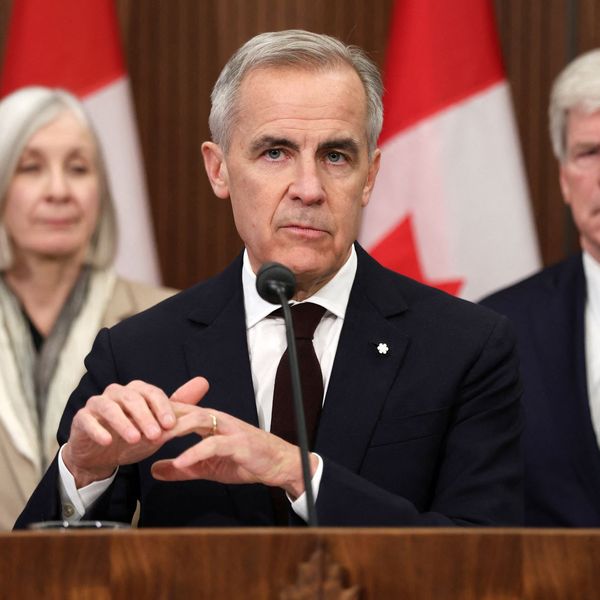A Canadian family physician who has served the the small community of Fort Chipewyan in northern Alberta for almost 16 years--and who rose to national prominence after raising concerns about the public health implications of tar sands--was abruptly fired last week and says he was given no explanation as to why.
The Nunee Health Board Society, which is the health authority in Fort Chipewyan (Fort Chip), fired John O'Connor in a four-sentence letter last Friday.
"Please be advised Nunee Health Board Society no longer requires your professional services to provide any patient consultation or on-call services to the staff at the Fort Chipewyan Health Centre," said the letter (pdf), signed by society chairwoman Roxanne Marcel. "In addition, you have no authority to speak or to represent the Nunee Health Board Society in any way to any other individual, party or entity."
When O'Connor emailed back to request an explanation, he received no response.
Though the details around the termination remain murky, some wonder if O'Connor's outspoken stance on the health risks of tar sands worked against him in a province dominated by fossil fuel industry.
As the National Observer notes, "This extraordinary sequence of events has all the hallmarks of a politically motivated drama. That's because John O'Connor is no ordinary family physician."
O'Connor, who has since 2000 been on-call 24/7 for the tiny hamlet of about 1,200 people, began to speak publicly about the link between cancer rates and tar sands activity in 2006. Specifically, O'Connor observed worrisome rates of rare bile-duct cancer rates in Fort Chip, which lies downstream from Alberta's massive tar sands operations.
In addition, according to the National Observer, O'Connor called attention to "higher-than-average rates of other kinds of diseases, as well as persistent reports from local hunters and fishermen of unpleasant changes in the wildlife in the region--such as dead and disappearing muskrat, and fishes with strange deformities. He wondered if these circumstances had to do with the pollution from the oil sands companies."
The Edmonton Journal reported that "one of the chiefs from the region said there was an issue with O'Connor's preference to provide health advice remotely by telephone and other communications devices rather than come to the community."
But O'Connor--who claims to have answered calls while traveling in other countries, from holiday locations, and even from the shower--says no one from the community told him his lack of presence in the community was a problem.
And Aboriginal Peoples Television Network (APTN) spoke to at least one Fort Chip resident, Patti Grandjambe, who said she was very sad to learn of O'Connor's termination.
"He went out on a limb for us...speaking out about the higher rates of cancer" she told APTN. "Now that he's gone who do we turn to?"


